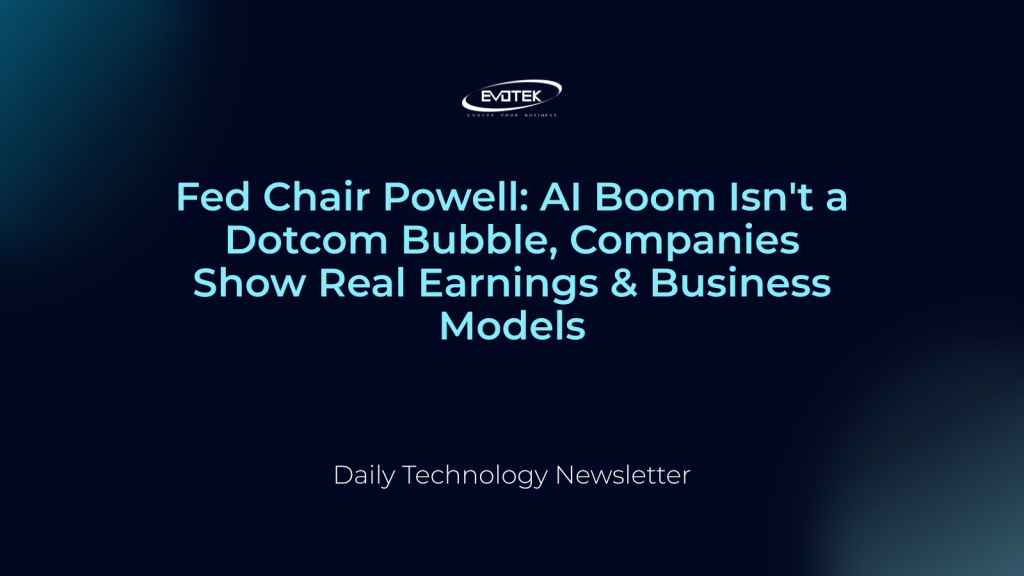Federal Reserve Chair Jerome Powell has offered a definitive perspective on the current surge in artificial intelligence investment, asserting it stands in stark contrast to the speculative fervor that defined the dot-com bubble. Powell’s analysis suggests that unlike its historical predecessor, the contemporary AI boom is underpinned by genuine economic activity and robust profit-making firms.
Speaking to reporters after the latest Federal Open Market Committee meeting, Chair Powell explicitly drew a line between the two eras. “I won’t go into particular names,” he noted, “but they actually have earnings.” This crucial distinction highlights his confidence that today’s leading AI companies possess sustainable business models and demonstrable profitability, a foundational difference from many of the internet-era startups that vanished after the dot-com bust.
“These companies… actually have business models and profits and that kind of thing,” Powell further elaborated. “So it’s really a different thing” from the speculative environment of the late 1990s. This view underscores the belief that AI investments are driving concrete productivity gains across various sectors, creating real-world impact rather than being solely driven by future promises or market hype.
Powell’s assessment implies that the substantial capital flowing into AI is directed towards enterprises with tangible assets, established revenue streams, and a clear path to generating value. This grounding in the “real economy” suggests a resilience that was notably absent during the dot-com era, where many ventures lacked a clear profitability roadmap, leading to widespread market correction. While acknowledging the rapid growth and excitement surrounding AI, the Fed Chair’s comments provide reassurance that the current investment landscape is fundamentally more sound and less prone to a sudden, widespread collapse.

 日本語
日本語 한국어
한국어 Tiếng Việt
Tiếng Việt 简体中文
简体中文